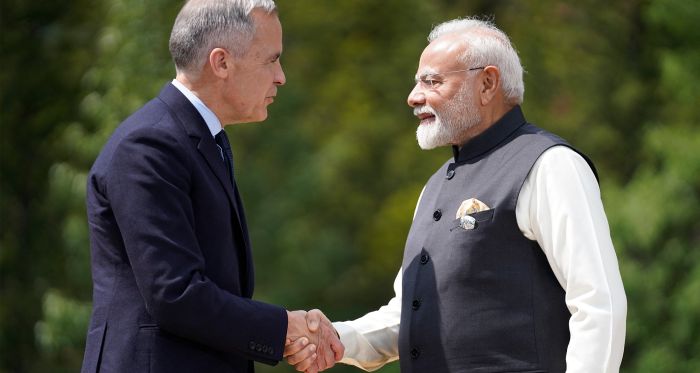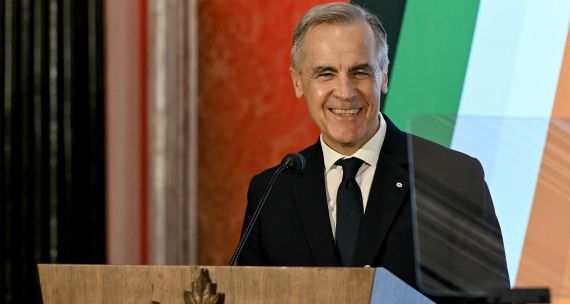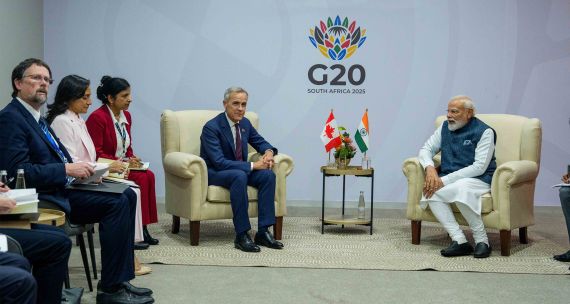The Takeaway
Canadian Prime Minister Mark Carney’s invitation to Indian Prime Minister Narendra Modi to the G7 Summit in Kananaskis, Alberta, June 15-17 marked a breakthrough in Canada-India ties. Bilateral diplomatic relations — stalled since former prime minister Justin Trudeau’s September 2023 allegation linking the murder of Canadian Sikh activist Hardeep Singh Nijjar to agents of the Indian government — may now be headed for a ‘reset.’
Canada’s 2025 G7 presidency offered Ottawa a strategic opportunity to re-engage with rising powers such as India, especially as other G7 nations deepen co-operation with New Delhi. However, the path to a full reset remains fraught with national security concerns on both sides. Canada is worried about foreign interference and transnational repression allegedly linked to New Delhi, while India continues to harbour concerns over the presence of Canada-based Khalistani extremism.
In Brief
- Carney’s G7 invitation to Modi — who has attended every G7 summit since 2019 — was a necessary diplomatic gesture. In justifying the invite, Carney emphasized India’s vital role in global supply chains and its status as the world’s most populous democracy and fifth-largest economy.
- The invitation to Modi sparked backlash from some Sikh activist groups in Canada, particularly the World Sikh Organization, which called the move a “betrayal" of their community and Canadian values. Protests were staged in Calgary, Alberta, during Modi’s visit.
- Participating as a non-G7 “outreach partner country” — alongside Australia, Brazil, Mexico, South Africa, South Korea, and Ukraine — India endorsed two Canadian-led initiatives: the Critical Minerals Action Plan to bolster supply chains and the Kananaskis Wildfire Charter to push for climate resilience.
- Following a bilateral meeting on the sidelines of the summit, Carney and Modi agreed to reinstate high commissioners and restore regular diplomatic services. Both countries had expelled each other’s high commissioners in October 2024.
- The visit marked Modi’s first trip to Canada in a decade. His previous visit was in 2015.
Implications
Marking a departure from the Trudeau government, Carney’s outreach to Modi likely signalled the start of a broader reset in bilateral relations. Their bilateral meeting, described by Carney as a “necessary first step” and by Modi as “excellent,” resulted in agreements to explore future collaboration in key areas such as energy, critical minerals, artificial intelligence (AI), digital infrastructure, and food security, among other initiatives. The two leaders also discussed resuming bilateral free trade negotiations, which were paused in September 2023. Bilateral trade could increase by up to C$8 billion over the next decade through a trade agreement, particularly at a time when both countries are seeking trade diversification amid the threat of U.S. tariffs.
While Carney refused to comment on whether he discussed the Nijjar case with Modi, he highlighted issues related to transnational repression, while India emphasized its counter-terrorism priorities. The two countries also discussed law enforcement co-operation. The durability of this emerging diplomatic thaw will, however, depend on co-operation mechanisms working effectively amid unresolved tensions. Ottawa has concerns about Indian foreign interference on Canadian soil, while New Delhi has repeatedly condemned Canada-based extremism linked to the Khalistan movement, which seeks a separate Sikh homeland through secession from India.
At the global level, Modi’s participation in the summit provided India with a diplomatic platform to voice concerns about terrorism. The Indian prime minister urged global leaders to take decisive action against those who support terrorism during the G7 outreach session. His remarks came in the aftermath of a deadly terrorist attack in India’s Kashmir region in April and New Delhi’s subsequent military retaliation targeting alleged terrorist hotspots in Pakistan. New Delhi’s concerns about terrorism remain entwined with its relationship with Ottawa, as India has alleged that Canada serves as a “safe haven” for Khalistani terrorists.
Amid rising global tensions —the escalating conflict in the Middle East, the Russia-Ukraine war, geoeconomic uncertainty surrounding U.S. tariffs, and more — Modi amplified the concerns of the ‘Global South,’ urging equitable international responses to shared global crises. New Delhi also signalled broad alignment with key G7 priorities, particularly in the areas of critical minerals, responsible AI, and clean energy.
What’s Next
1. Sustained engagement by Carney, Canada
Other G7 partners have already deepened co-operation with New Delhi through rapid progress in forging trade agreements, technology partnerships, and security co-operation especially as New Delhi emerges as an economic powerhouse and a counterbalance to China’s rising assertiveness in the Indo-Pacific. For Canada, sustained engagement with India is a strategic necessity to advance its 2022 Indo-Pacific Strategy and diversify trade amid an ongoing trade war with the U.S. With Canada holding the G7 presidency through 2025 and the G20 Summit approaching in November, this moment represents a timely opportunity to translate shared priorities into concrete bilateral and multilateral initiatives.
2. Co-operation on critical files
While Modi attended the G7 summit in Canada, a report from the Canadian Security Intelligence Service (CSIS) identified India — alongside China, Russia, Iran, and Pakistan — as a perpetrator of foreign interference in Canada. The same report, tabled in Parliament on June 13 and published by CSIS on its website June 18, also identified Canada-based Khalistani extremism (CBKE) as an ongoing “national security threat” to Canada, highlighting how “real and perceived” concerns about such activities are fuelling India’s foreign interference in Canada. Though referenced in a 2018 CSIS report, this is the first time in recent years that CSIS has explicitly labelled CBKE a national security threat.
Mike Duheme, commissioner of the Royal Canadian Mounted Police, recently described co-operation with India in the Nijjar case as “good,” with a focus on “rebuilding” the relationship. While law enforcement co-operation between the two countries is underway, much will depend on whether Canada can secure concrete outcomes to ensure justice in the Nijjar case and address broader concerns related to transnational repression and foreign interference. Likewise, New Delhi will expect Ottawa to address its concerns about Khalistani extremism in Canada.
• Edited by Vina Nadjibulla, Vice-President Research and Strategy, and Ted Fraser, Senior Editor, APF Canada







